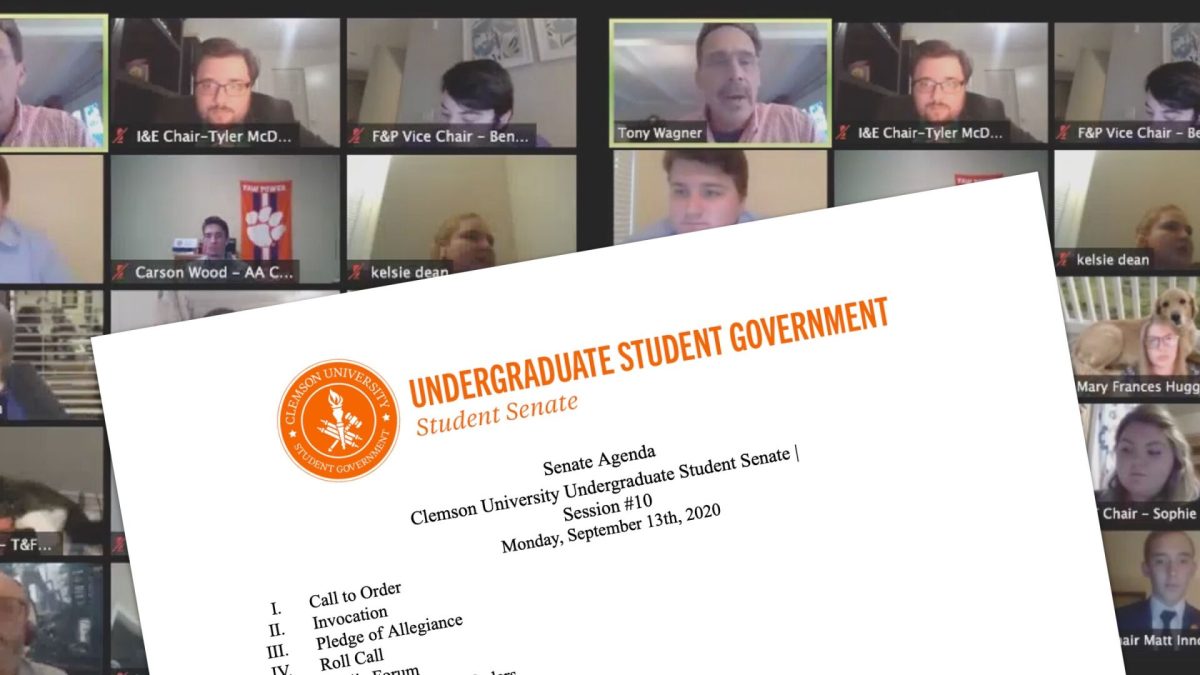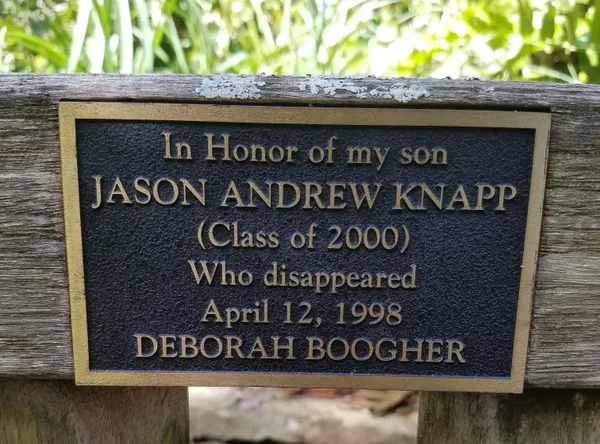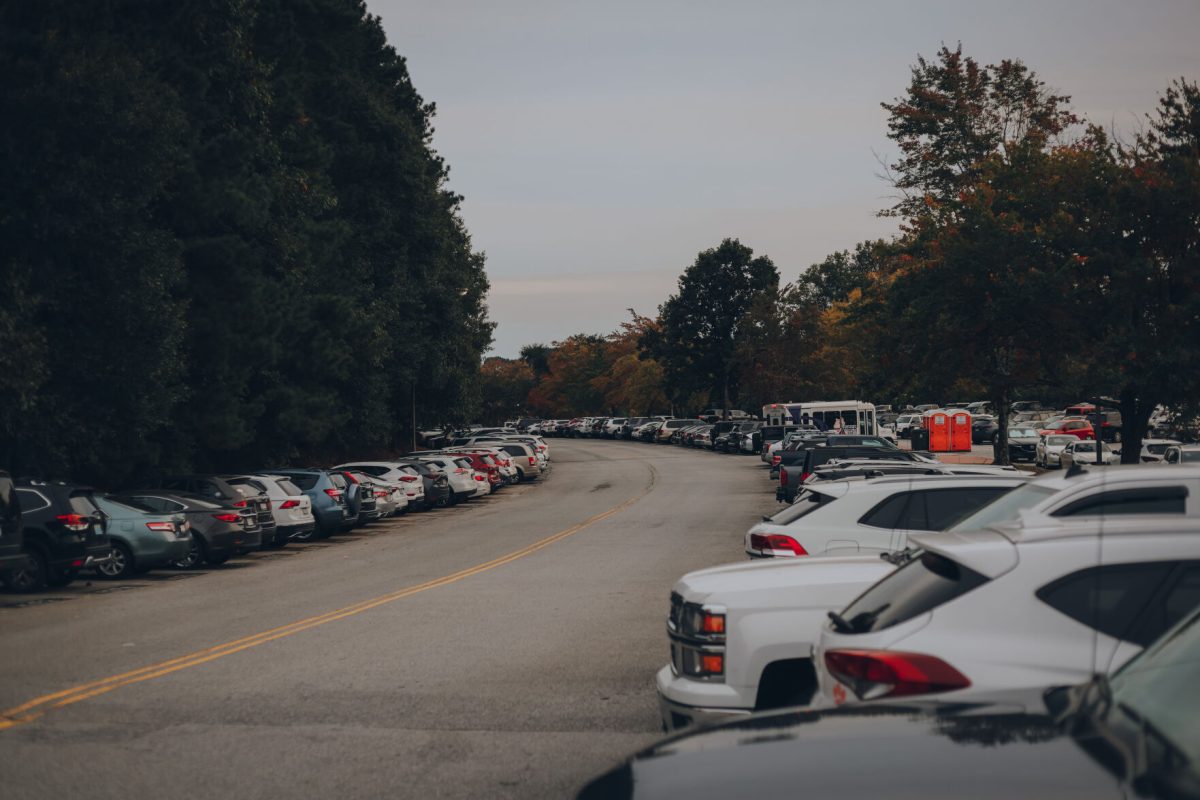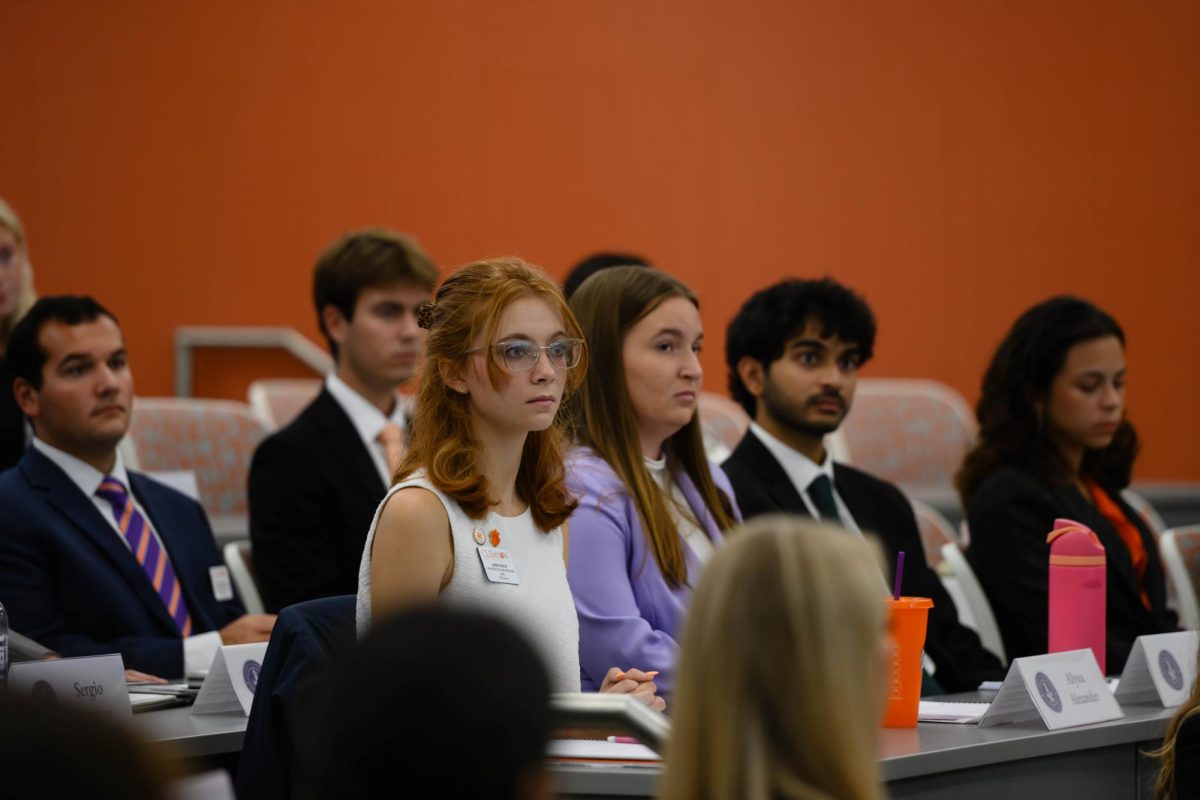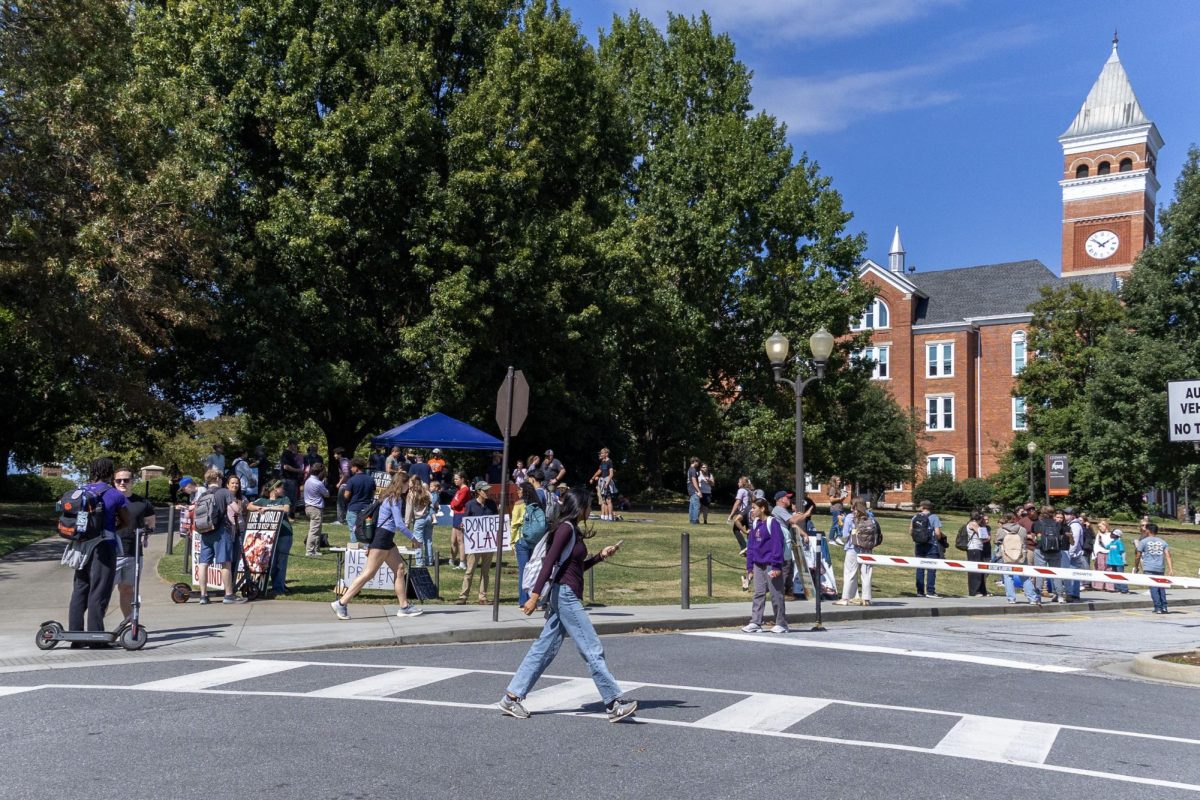The Clemson University Undergraduate Student Senate held their weekly Monday night meeting on Sept. 7, 2020. The third meeting of the semester featured a presentation by the Clemson University Campus Democracy Plan, a COVID-19 panel with University administration, and numerous pieces of legislation.
“It’s about making voting cool. Encouraging your friends to vote, to register, posting it on social media is our goal,” explained Ashley Jones, along with Dr. Bridget Trogden, from Clemson for Democracy. At the CUSG meeting Monday night, they discussed the Campus Democracy Plan – a means of working with students in non-partisan ways across all organizations to improve student voter engagement.
According to data published by Clemson for Democracy, the 2018 registration rate among Clemson students was 80%, with 51.3% of registered students actually voting. With concerns about voting amid the COVID-19 pandemic, Jones emphasized how the group is using the plan “as a tool to answer any student’s concerns about being able to vote”.
Following the presentation by Clemson for Democracy was the COVID-19 panel with University administration. This panel is the first of such with the Clemson Undergraduate Student Government, with a question-and-answer period that spanned nearly an hour. More information about this panel is available in our article about the panel below.
Subsequent to the COVID-19 panel were committee reports, beginning with Academic Affairs. CUSG Senator Carson Wood, Chair of the Academic Affairs committee, explained how the University is still continuing with its reopening process per the email sent to students last Friday. 64% of the undergraduate program is planned to be in a “blended mode” of instruction as well.
The Health and Human Services committee with CUSG Senator and Chair Cassidy Smith reiterated Clemson’s testing procedures, including that feedback which was submitted was forwarded to MUSC.
The Student Senate debated ten pieces of legislation Monday night, most of which concerned the procedure within the Student Senate now that the meetings are being held virtually over Zoom.
The agenda for this meeting can be viewed here, and a recording of the Zoom meeting through Tigervision.
The Clemson University Undergraduate Student Senate held their weekly Monday night meeting on Sept. 7, 2020. The third meeting of the semester was notable for its COVID-19 Administration Q&A panel with Provost Robert Jones, Dean of Students Chris Miller, and Clemson University Police Department Chief Greg Mullen.
“When we first created our models, we had little information about the disease. We still don’t know a lot, but when we started the fall semester, we knew a lot less than we know now,” Jones said during the beginning of the COVID-19 panel.
Jones, the first speaker in the panel, defended the University’s decision-making throughout the pandemic, specifically the decision to continue the reopening process.
“It is our responsibility to step up and manage public health. Our students, the residents of the town of Clemson, our employees. How would bringing back students into our dormitories change that responsibility? It turns out, not much at all,” remarked Jones. “All in all, it’s ok and it’s actually advantageous to us to bring students back into the dorms.”
Miller followed Jones in speaking, echoing some of his encouraging points and introducing other administration members present in the panel.
“Students are in fact coming back on Friday. But it has been a very, very long process,” Miller said.
Mullen followed Miller’s remarks and emphasized the need for personal accountability and voluntary compliance within the student body.
“The key element in all of this is that each individual has a personal responsibility to make sure that we succeed as a University. None of these plans are going to be successful unless we get all of the individuals that are a part of those plans to buy into those plans. One person, one event, one activity can kill the plans we’ve been working on for months.”
A key point Mullen emphasized on behalf of the whole administration was about money. Concerns have been expressed by students about the administration failing to take precautions due to budget restraints, but Mullen explained that “there has never been a discussion about money”.
“It always has been about the success of students and the University not only just now, but ten, twenty years from now,” Mullen said.
What followed the introductory remarks by the three members of University administration was an extensive Q&A panel with questions from both CUSG Senators and the public.
CUSG Senator Thomas Newell of the Inclusion and Equity Committee presented an issue with the University’s approach to self-monitoring and self-reporting of symptoms.
“What is the impact of the negative pressure of having to quarantine on the reporting of cases, both in the statistical modeling and the implementation of the plan and how is Clemson prepared to mitigate these negative pressures?”
Jones responded with reassurance of the University’s planning and models, “We have multiple variables that we’re looking at. We’re hoping social distancing and face masks will work. We have ways to catch it. Our models can stand firm with a leap or two there. It’s when you stack all those strategies together that it works.”
A later question by CUSG Senator Tyler McDougald, Chair of the Inclusion and Equity Committee, asked about a model Jones mentioned earlier in the panel with regard to infection rates on campus. Jones described the model as formerly being three-fourths of students getting infected across the course of the semester, but now that model is showing around one fourth of students testing positive at one point.
The Tiger reached out to the Provost for more information about this model and the plans for isolation on campus:
It is safe to say that hundreds to thousands of students will be infected (Out of 25,000, the vast majority who will NOT be infected) over the course of the semester at one time or another, but not all at once. At any one time, on-campus students living in dorms (6,900 students) needing Isolation [sic] or quarantine beds will number upwards of several hundred, the exact number is not known, but we are securing 600 or more beds to be sure we have enough to meet this potential need. For students living off campus, we will ask them to self-isolate if they get infected. Clemson will frequently check up on these students to help as needed.
Members of the Clemson University Student Government have indicated that they would be open to communication with the University administration regarding reopening procedures.
Clemson University is taking a variety of steps to ensure a safe campus for students to return in the next few weeks. For more information on the resources available, check out the Healthy Clemson resources page.



